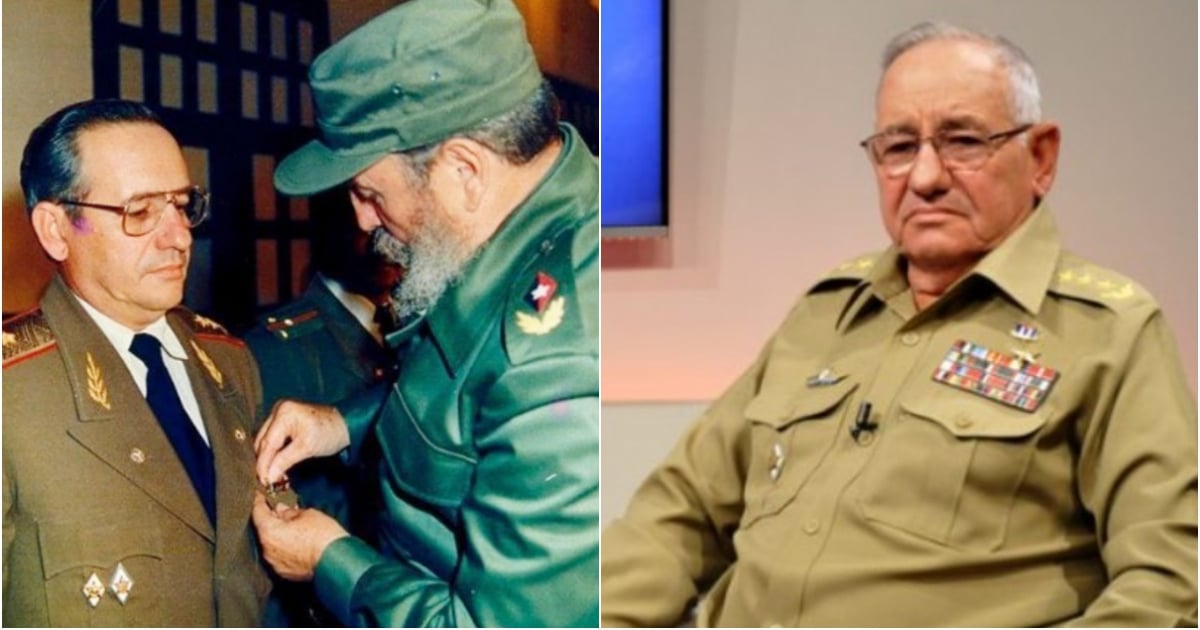General of the Army Corps Ramón Espinosa Martín, the first vice minister of the Revolutionary Armed Forces (FAR) of Cuba, passed away suddenly this Tuesday afternoon at the age of 85. The official announcement from the FAR, echoed by various media outlets, did not disclose the cause of death, stating only that he died "unexpectedly."
In addition to his role in the Armed Forces, Espinosa Martín was a member of the Political Bureau of the Central Committee of the Communist Party of Cuba (PCC) and a deputy in the National Assembly of People's Power. He was also honored as a Hero of the Republic of Cuba and Hero of Labor, accolades highlighted in the brief official statement that praised his "illustrious service record to the Homeland and the FAR."
The octogenarian general's body will be cremated, and his ashes will be placed in the Granma Hall of the Ministry of the Revolutionary Armed Forces until funeral services are held.
Condolences from Cuban Leadership
Cuban leader Miguel Díaz-Canel expressed his sorrow over the death of the high-ranking military officer through a post on X. "With deep sorrow for the physical departure of General of the Army Corps Ramón Espinosa Martín. My sympathies go out to his colleagues in the FAR and to his family and friends. The legendary hero of Cabinda will continue to inspire the brave Cuban soldiers. Farewell, dear comrade," Díaz-Canel wrote.
Life and Career of Ramón Espinosa Martín
Born on March 12, 1939, into a farming family in Camajuaní, formerly part of Las Villas province, Espinosa Martín joined the clandestine fight against Fulgencio Batista in the 1950s as a member of the July 26 Movement. He later joined the guerrilla forces of the March 13 Revolutionary Directorate in the Sierra del Escambray, eventually becoming the second-in-command of the "Menelao Mora" Command.
After the 1959 revolution, he remained in the military, undertaking studies in both Cuba and the Soviet Union, and steadily climbed the ranks within the FAR. In the Angolan War, he led Cuban instructors in 1975 and commanded the famed Battle of Cabinda, in which he was severely injured. He was later appointed head of the Cuban military mission in Ethiopia from 1980 to 1982. Upon his return, he became the Chief of the Eastern Army, a position he held for over two decades.
A Controversial Legacy
Espinosa Martín presided over the military tribunal that sentenced General Arnaldo Ochoa to death and handed down severe prison sentences to other high-ranking officers in 1989. Promoted to General of the Army Corps in 2001, the second-highest rank after General of the Army, he was named vice minister of the FAR in 2009 and assumed the position of first vice minister in 2021. A member of the PCC Central Committee since 1980, he joined the Political Bureau in 1997 and served as a deputy for several decades.
He authored two books recounting his experiences in the Battle of Cabinda and Cuba’s guerrilla warfare, and received numerous decorations throughout his career.
Implications for Cuba’s Future
The death of Ramón Espinosa Martín adds to the recent passing of four other Cuban generals: Romárico Vidal Sotomayor, Juan Antonio Hernández Hernández, Jorge Luis Guerrero Almaguer, and Juan Israel Cervantes Tablada. The demise of these veteran generals highlights the pressing need for a generational shift that could pave the way for the much-needed changes in Cuba. These senior leaders, deeply entrenched in the ideological and military rigidity of a system that has kept Cuba politically and economically stagnant, represent a past that has stifled any meaningful attempt at reform or openness.
